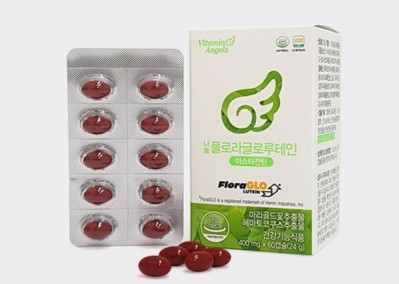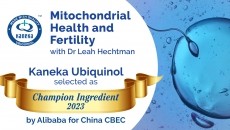Eye and BMI: Lutein, zeaxanthin’s benefits more effective in individuals with healthy weight – 16-week trial

The trial showed that the total macular pigment optical density (MPOD) had increased at a rate of 0.13 in subjects with BMI lower than 25 kg/m2 but decreased at a rate of 0.12 in those with BMI of 25 kg/m2 and above.
The higher the MPOD levels, the higher the amount of lutein and zeaxanthin in the brain. Both ingredients help to block blue light from digital devices and its photochemical damage to the retina.
Findings of this particular study was recently published in Scientific Reports.
The study was conducted by researchers from Japan’s Seirei Hamamatsu General Hospital, Hamamatsu University School of Medicine, as well as University of Utah and the Longevity Link Corporation.
This is also the first study to show that lutein and zeaxanthin can increase the skin carotenoid (SC) score. The SC score measures the amount of antioxidant in the body.
Findings showed that the mean SC score had significantly increased over the course of the supplementation, growing from a baseline of 277 to 423 by week 16.
The study was supported by grants from the US’s National Institutes of Health and a departmental grant from the Research to Prevent Blindness at the Moran Eye Center.
Study design
Sixteen healthy volunteers aged 26 to 57 had completed the open-label trial at the Seirei Hamamatsu General Hospital.
They had to take three soft capsules of the supplement containing lutein and zeaxanthin after each meal for 16 weeks.
The supplement used is a product of Wakamoto Pharmaceutical. It contains 20 mg of lutein, 4 mg of zeaxanthin, 408mg of vitamin C, 242.3mg of vitamin E, 30mg of zinc, and 1.5mg of copper.
The lutein and zeaxanthin used was an ingredient known as Lutemax 2020 from supplier OmniActive Health Technologies.
The MPOD levels of either their right or left eye was measured at baseline, 4th, 8th, 12th, and 16th week after starting the supplement intake.
MPOD increased
The supplementation of lutein and zeaxanthin was shown to increase the mean total MPOD volume from the 8th week of the study.
For instance, the mean total MPOD had increased from 12,097 at baseline to 12,585 at the 8th week, 13,093 at the 12th week, and 13,408 at the 16th week
This was a significant finding as the p value was lesser than 0.05.
However, a further analysis showed that the subjects’ BMI played a role in the effectiveness of the supplementation.
Amongst the 12 subjects who had normal BMI, there was an increase of 5% or more in their total MPOV.
The supplementation did not increase the total MPOV for the remaining four subjects. Three of them had BMI ranging from 26.1 kg/m2 to 29 kg/m2 – the top three highest amongst all the subjects. The fourth subject on the other hand, had the lowest BMI at 16.8kg/m2.
The researchers believe that this is because the fat tissue and the retina are competing for lutein in subjects with high BMI. The subject with the lowest BMI might had suffered from diet malabsorption.
Skin carotenoids
On the other hand, the skin carotenoids (SC) level also increased with the supplementation.
In contrast to the MPOD, the SC level started to increase from the 4th week of the study.
At the 4th week, the mean SC level had increased from a baseline of 277 to 337, and subsequently to 386, 402, and 423 at the 8th, 12th, and 16th week.
The researchers believe this is because SC reflected the serum concentration of carotenoids and supplements are able to induce a quick increase in serum lutein and zeaxanthin levels.
In contrast, the lutein and zeaxanthin concentration at the macular pigment level accumulate gradually. As such, more time must elapse in order to detect a significant change.
Findings showed that the mean SC score had significantly increased over the course of the supplementation, growing from a baseline of 277 to 423 by week 16.
“From the results of this study, the effectiveness of supplements containing 20 mg of lutein and 4 mg of zeaxanthin combined with co-antioxidants on MPOV and SC levels without any serious adverse event could be demonstrated in subjects with relatively low MPOD levels at baseline,” the researchers said.
LDL-cholesterol increase
Another key finding was that the mean LDL-cholesterol of the subjects had significantly increased by the end of the study.
Their LDL- cholesterol – the unhealthy cholesterol level – had increased from the baseline level of 124mg/dL to 135mg/dL by week 16.
The researchers believe that this has to do with the composition of the supplement.
Containing sunflower oil, safflower oil, fatty acid ester, and glycerol fatty acid ester, the researchers believe that these fatty acids may have influenced the LDL-cholesterol level.
Source: Scientific reports
Effect of an antioxidant supplement containing high dose lutein and zeaxanthin on macular pigment and skin carotenoid levels
https://doi.org/10.1038/s41598-020-66962-2
Authors: Obana, A., Gohto, Y., Nakazawa, R., Moriyama, T., Gellermann, W., & Bernstein, P. S.


















